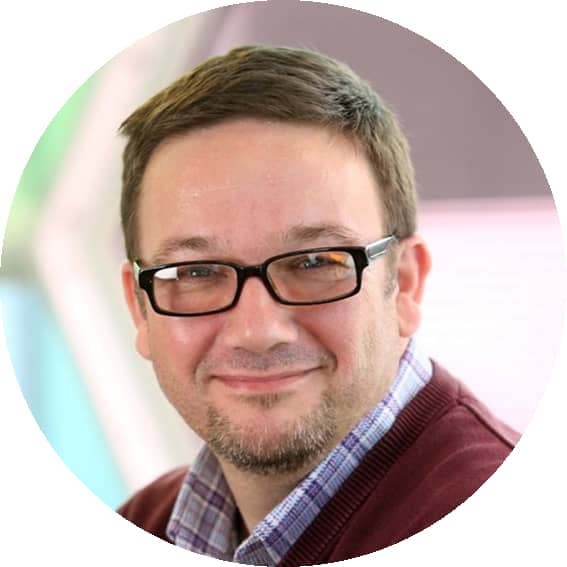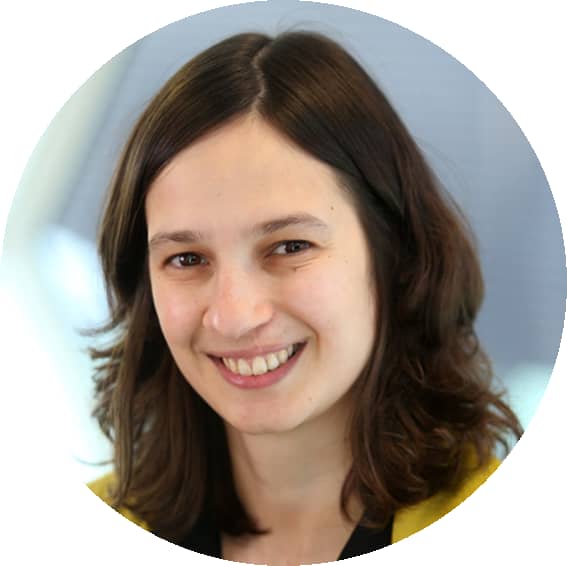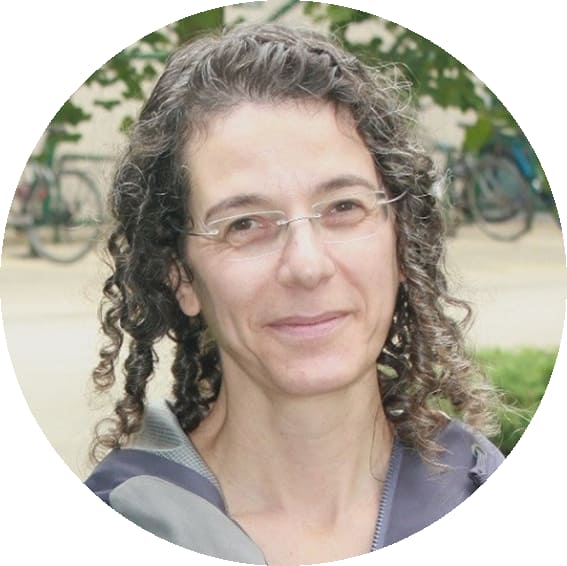Cardiff University

Michael W Bruford
Professor of Biodiversity
With great sadness we announce the recent passing of our colleague and chair, Professor Mike Bruford. His dedication and perseverance are an inspiration to us all. Messages of condolence for the family should be directed to Cardiff University School of Biosciences BIOSI-SchoolOffice@cardiff.ac.uk.
Mike is the lead investigator of CryoArks and the Director of the Frozen Ark project. His expertise is in genetic management of endangered species and the interaction between the genetic resources of wild species and of zoo, other captive populations and domestic species. He is currently co-Chair of the IUCN Species Survival Commission’s Conservation Genetics Specialist Group and helps to ensure genetic evidence is used on conservation planning at an international level.

Mafalda Costa
PostDoctoral Research Associate
Mafalda is one of the CryoArks PostDoctoral Research Associates. She is responsible for the day-to-day management of project activities, liaising with partner and collaborating institutions, helping with grant applications and drafting of manuscripts, supporting sampling initiatives, and overseeing the project’s research and dissemination activities.
University of Nottingham

Lisa Yon
Lecturer in Zoo and Wildlife Medicine
Lisa has worked on the development of novel technologies for surveillance and diagnosis of zoonoses and emerging infectious diseases in wildlife (such as rodents), and currently has projects looking at ecosystem, human and animal health, with a particular focus on detecting and assessing the health impacts of anthropogenic contaminants (in the UK and in Africa). She also works on developing new methods to assess and improve welfare in captive elephants, working closely with stakeholders, both in the UK and overseas. is leading the sampling initiative for CryoAarks and serves as liaison with veterinarians, collection managers, curators and EAZA Taxonomic Advisory Group chairs for dissemination within UK zoo community. She will help develop best practice guidelines for biobank sampling, and serves on the CryoArks Executive Team managing the project.
University of Edinburgh

Rob Ogden
Director of Conservation Science
Rob is a senior lecturer at the University of Edinburgh, where he holds the position of Director of Conservation Science at the Veterinary School and the Roslin Institute. His research career has focused on the transfer and application of population genetics to conservation management across a wide range of species and environments, from zoo breeding programmes to threatened wild populations. Rob is an active member of the IUCN SSC Conservation Genetics Specialist Group and has a strong interest in wildlife forensics, serving as the current president of the Society for Wildlife Forensic Science. Since 2006, he has been a director of TRACE Wildlife Forensics Network, an NGO that supports the application of forensic science to wildlife law enforcement around the world.

Sílvia Pérez Espona
Conservation Science Programme Coordinator
Silvia’s main research interests concern the application of molecular tools to address ecological and evolutionary questions to assist the conservation and management of biodiversity. She has worked on a wide range of organisms from temperate, tropical and polar regions. She is currently the Conservation Science Programme Coordinator at the Royal (Dick) School of Veterinary Studies, the Roslin Institute, the University of Edinburgh. Due to her interest on increasing collaboration between conservation geneticists and practitioners, Silvia was also part of the EU consortium ConGRESS (Conservation Genetics Resources for Effective Species Survival) and has collaborated with conservation NGOs such as IUCN during the consultation process for their initiative on the identification of Global Key Biodiversity Areas.
Natural History Museum

Tim Littlewood
Executive Director of Science
Tim’s research focuses on revealing and explaining the origins and evolutionary radiation of parasitic worms, particularly amongst the flatworms (Platyhelminthes). He is also interested in biodiversity discovery, parasite life cycles, and diagnostics revealed through molecular systematics. Tim has an interest in developing, enhancing and utilising natural history collections generally, and focus on their potential for disease and biomedical research.

Aidan Emery
Researcher and Culture Facility Manager
Aidan is a researcher at the Natural History Museum in London and since 2000 he has worked at the Natural History Museum in London, primarily on the flatworm schistosome parasites that cause the neglected tropical disease schistosomiasis. Since 2011, a major focus has been to develop the Schistosomiasis Collection at the Natural History Museum (SCAN), a biobank of schistosomes and their snail intermediate hosts which provides genetically diverse samples to complement the long-term laboratory isolates conventionally used in schistosomiasis research.

Jackie Mackenzie Dodds
Molecular Collections Facility Manager
Jackie is the manager of the Natural history Museum’s Molecular Collections facility (biobank), launched in 2012. She is an active global biodiversity collections, preservation and research networker; member and organiser of key consortia, committees and working groups including: Global Genome Biodiversity Network (GGBN), Frozen Ark Project Advisory Board Member, European, Middle Eastern and African Society for Biopreservation and Biobanking (ESBB) and International Society for Biological and Environmental Repositories (ISBER) Enviro-Bio Working Groups, SYNTHESYS+ (under CETAF umbrella): EU Museum and Herbarium Molecular Collections and UK Biological Resource Centre Network (UKBRCN), linking non-human and clinical collections e.g. CABI and PHE, including living collections, cell cultures and micro-organisms.

Kirsty Lloyd
Technician
Kirsty joined the CryoArks team as a technician based at the Natural History Museum (NHM) in London. Her role is to support collections enhancement at the NHM as well as consolidating existing collections at other institutions. Where appropriate she will be reformatting and transferring other collections to the Molecular Collections Facility at the NHM or to other CryoArks facilities in order to improve maintenance and access. She is also supporting the data management and development of standard operating procedures for data transfer, storage and access.
National Museums Scotland and Royal Zoological Society of Scotland

Andrew Kitchener
Principal Curator of Vertebrates
Andrew is the Principal Curator of Vertebrates in the Department of Natural Sciences, National Museums Scotland. He is Chair of the Scottish Wildcat Action Steering Group, a senior editor of Journal of Zoology, honorary lecturer in the Institute of Biodiversity, Animal Health and Comparative Medicine, University of Glasgow, honorary research fellow in the School of Geosciences, University of Edinburgh. He is a member of the IUCN Cat Specialist Group and led the Cat Classification Task Force which published its first report in 2017. Andrew is a member of Marine Scotland’s Scottish Marine Animal Strandings Scheme Steering Group and the Animal Welfare and Ethics Group of the Royal Zoological Society of Scotland. He is a member of several Taxon Advisory Groups of the European Association of Zoos and Aquaria, including the EAZA Biobanking Working Group.

Helen Senn
Head of Conservation and Science Programmes
Helen manages the RZSS Conservation department which specialises in the restoration of threatened species across the globe and hosts the RZSS WildGenes conservation genetics lab. She is a specialist in applying genetic data to a wide range of practical conservation management situations such as the first beaver reintroduction to the UK and the national action plan to restore the wildcat to Scotland. She is a founding member of the European Association of Zoos and Aquaria (EAZA) Biobanking initiative and serves on a number of EAZA advisory and IUCN-SSC specialist groups. Helen has a particular interest in the management of reintroductions, the detection and management of hybridization, relationship between taxonomy and conservation, strategic planning and capacity building.

Gill Murray Dickson
Biobank Research Fellow
Gill has experience in research and application genetic data to inform conservation management of rare and endangered species. As part of CryoArks, she is establishing biobank facilities at the National Museums Collection Centre (NMCC) and RZSS Edinburgh Zoo to form Scotland’s biobank hub. She is responsible for coordinating CryoArks activities with the EAZA (European Association of Zoos and Aquaria) Biobank, curation of samples at the Edinburgh hubs, and development of outreach and education resources for promoting biobank initiatives within the research and zoo community.


